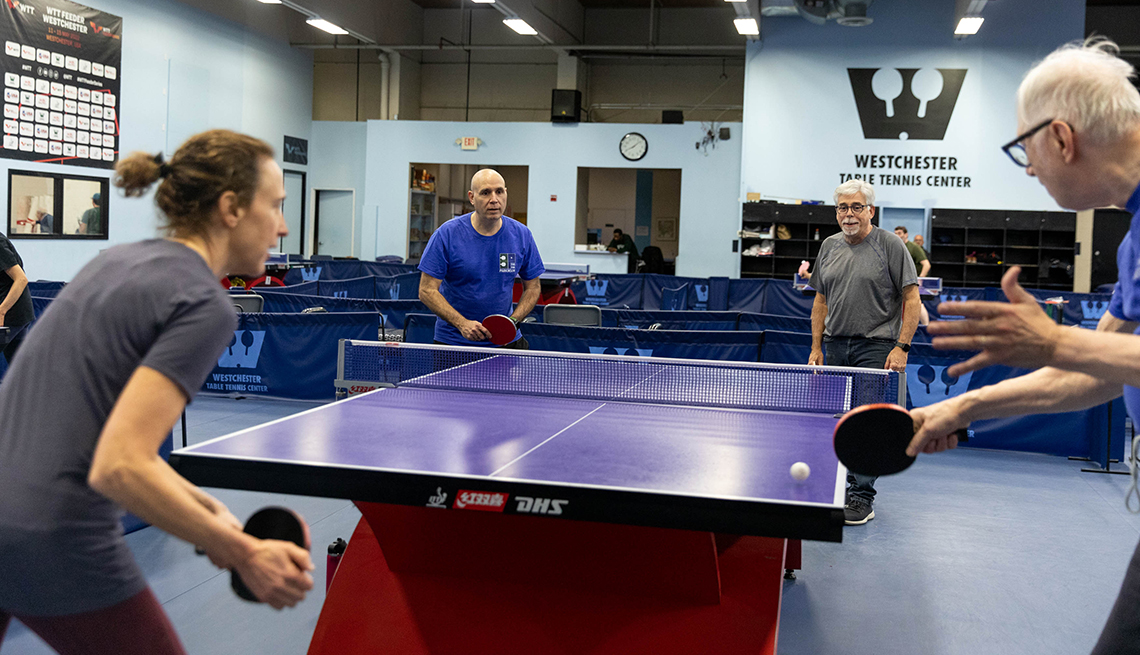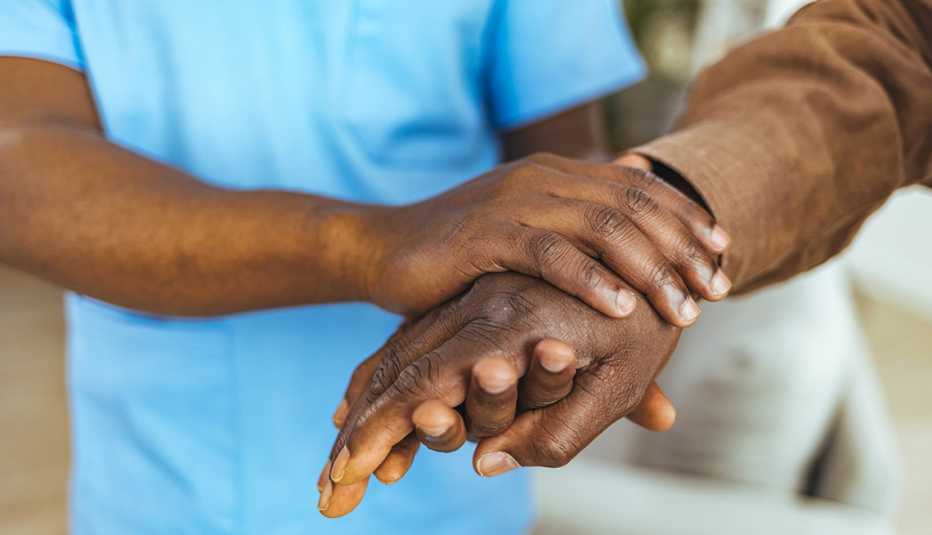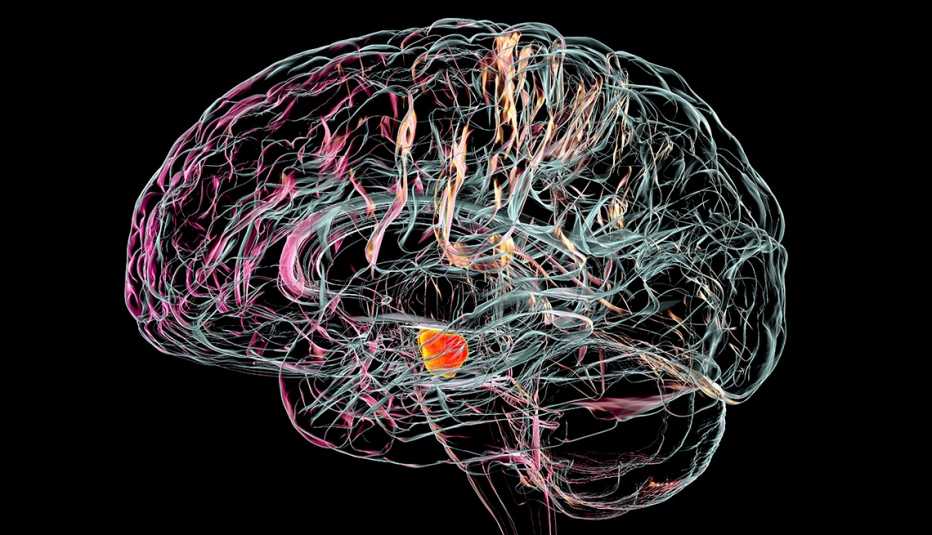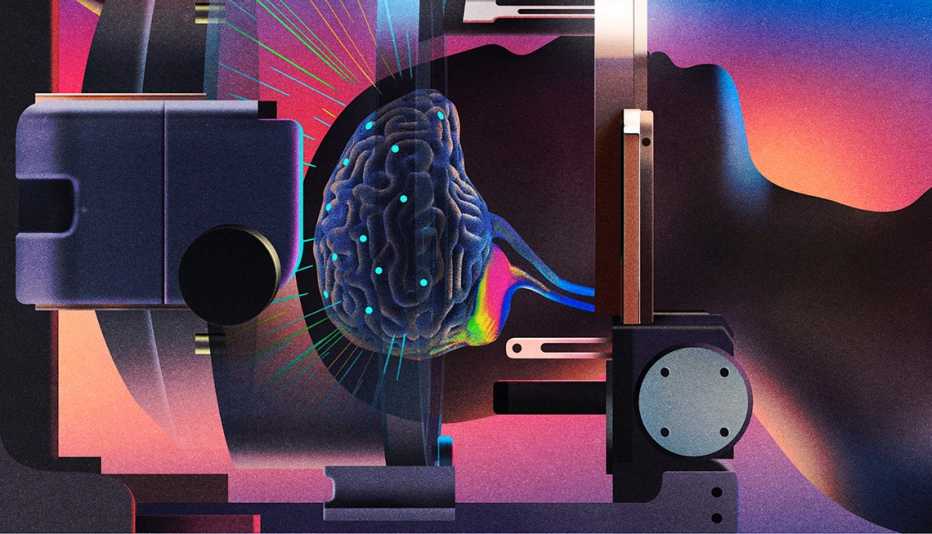Staying Fit
Croatian American musician Nenad Bach was diagnosed with Parkinson’s disease in 2010 at age 55, and five years later, his tremors were bad enough that he had to quit playing guitar. Unlike many patients who continue to degenerate, Bach is now thriving. In his late 60s, he’s not only playing guitar — he’s in the midst of an international tour. He attributes his enhanced health to a familiar racket sport.
Bach, who spends much of his time in the New York City suburb of Croton-on-Hudson, fell into ping-pong when a friend invited him for a casual game at a table tennis club. He noticed that he felt much better the next day, so he returned the following week. Again, he noticed an improvement in his symptoms. He stuck with it, and about six months later, he was able to play his guitar to a syncopated beat, which requires significant finger dexterity.


AARP Membership— $12 for your first year when you sign up for Automatic Renewal
Get instant access to members-only products and hundreds of discounts, a free second membership, and a subscription to AARP the Magazine.
Eager to share his passion for ping-pong and his renewed sense of health with other Parkinson’s disease patients, Bach started spreading the word. His group evolved into PingPongParkinson, a nonprofit organization and group of ping-pong enthusiasts. About 30 regulars typically join Bach once a week at Westchester Table Tennis Center in Pleasantville, New York, and other chapters have sprung up in New Jersey, Philadelphia, Wisconsin and California, as well as in Europe. The group holds informal dinners every few months, as well as an annual championship. The 2023 World Championship will be held in Austria in September.
The transformative power of ping-pong
Bach says he is not the only one in the group who has reaped an enormous benefit from ping-pong. “We have people who couldn’t walk who are walking now. We have ones who couldn’t talk but are talking now,” he says.
Parkinson’s disease typically strikes later in life, so it makes sense that most members in Bach’s group are 60 or older. But patients of all ages and stages are welcome, and they all have something to contribute and take away from the group.
Mike Berte is 56, and he’s been living with Parkinson’s for 12 years. He drives about an hour each way from his home in Trumbull, Connecticut, to play ping-pong with Bach and the rest of the group once a week.
Berte says his condition is relatively mild, noting that he still plays golf and that he recently started playing ping-pong with a group of people who don’t have Parkinson’s. Outside the PingPongParkinson group, he doesn’t know many who share his condition. “My family is very supportive, but it’s cathartic when you talk to someone who’s going through what you’re going through,” he says.
Matt Perks, 49, is the youngest member of the group and one of its newest members. A resident of Beacon, New York, he, too, travels about an hour each way to play with the group in Pleasantville. The fact that there’s an age gap between him and the majority of the group members isn’t bothersome. “There’s a common bond. You get put into groups with people who are 55, 65, 75 — and it’s fun.”






































































